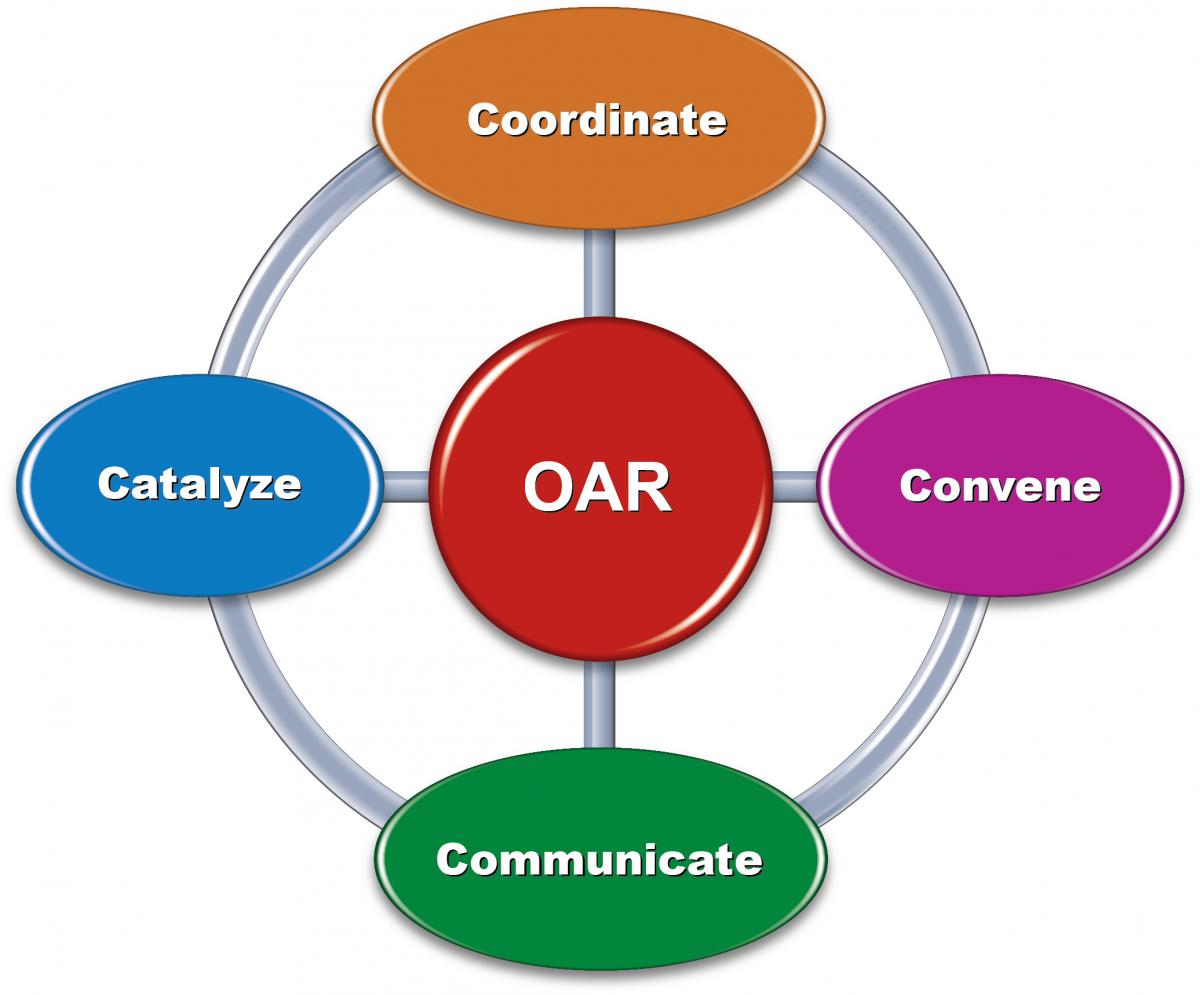OAR's Coordinating Role
The National Institutes of Health (NIH) provide leadership in setting the national and global HIV/AIDS research agenda. NIH’s leadership and investment have helped to chart a course that has changed the face of the pandemic.
The NIH response to the HIV/AIDS pandemic requires a unique and complex multidisciplinary research program that transcends every area of clinical medicine and basic scientific investigation and crosses the boundaries of nearly every Institute and Center (IC). OAR was established by Congressional legislation in 1988 to enhance NIH collaboration, minimize duplication, and ensure that research funds are invested effectively and efficiently across the ICs conducting HIV/AIDS research. In this unique role, OAR coordinates the scientific, budgetary, legislative, and policy elements of the NIH HIV/AIDS research program to develop new tools in the national and international fight against AIDS.

OAR also convenes representatives from the NIH ICs, scientists in the field, and community stakeholders to identify the highest priority areas of scientific opportunity and establish the NIH research priorities for HIV/AIDS. The priorities address prevention, treatment, and developing a cure, as well as the management of comorbidities and health complications common in people living with HIV.
Finally, OAR oversees the Working Groups for the HIV/AIDS research scientific priorities. Working Groups provide input during the annual strategic planning and budgeting process, as well as in the development of special initiatives.
This page last reviewed on January 20, 2023


